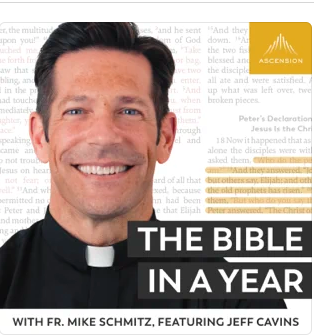
Fr. Mike reads the Sermon on the Mount and explains how Jesus’ teachings powerfully fulfill the old testament law, and identify the broken human heart as the source of our sinful actions. We learn that Jesus himself is the remedy to our sins, and that the secret to holiness is living in the perfect will of God. Today’s readings are Matthew 5-7, and Proverbs 18:21-24.
Click on link: https://youtu.be/fXSy0DsEnak

